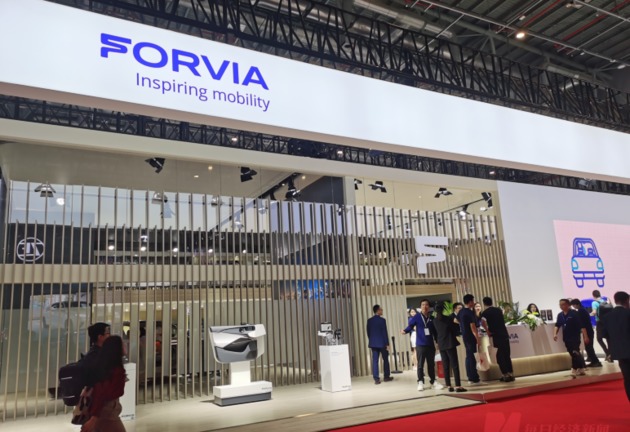
Photo/Sun Tongtong (NBD)
During the 2023 Shanghai International Auto Show, in addition to the heavyweight models and latest technologies showcased by major automakers, intelligent cabins, and software-defined cars are also hot topics and key areas of competition among major component suppliers.
Foria showcased the "Intelligence & Excitement Cabin" solution, which provides a customized travel experience such as adaptive lighting, and personalized sound headrests. By adopting lightweight architecture, sustainable materials, and energy-efficient electronic technology, the intelligent cabin can reduce CO2 emissions by 45%. At the same time, the cabin is equipped with external lighting solutions, a gaze perception-based human-machine interaction interface.
"Currently, it is almost impossible to find a car model without an intelligent cabin in the Chinese auto market. Even car models priced at 50,000 to 60,000 yuan will have decent screens," said Wang Jiadong, head of Foria's Future Cabin China business, in an interview with NBD.
Data shows that the penetration rate of intelligent cabins in newly released passenger car models in China in 2021 has reached 50.6%. According to IHS, the market value of intelligent cabins worldwide will reach $68.1 billion by 2030. According to ICVTank's prediction, the Chinese intelligent cabin market will reach 107.2 billion yuan by 2025, which is 2.14 times that of 2020. At the current growth rate, China may become the world's largest intelligent cabin market.
"The penetration rate of intelligent cabins in China is constantly increasing, moving towards 100% intelligence evolution," said Wang Jiadong.
However, intelligent cabin solution makers are meeting more challenges. It is noticed that a software platform is tailored to a specific car model, and it is difficult to transplant the software platform developed at a huge cost to other car models.
"Automakers now require us to provide an operating system platform that is not only compatible to the latest generation of models but also can be migrated to old platforms," said Zou Lujun, general manager of Elektrobit China, an automotive software company, in an interview with NBD.


 川公网安备 51019002001991号
川公网安备 51019002001991号





